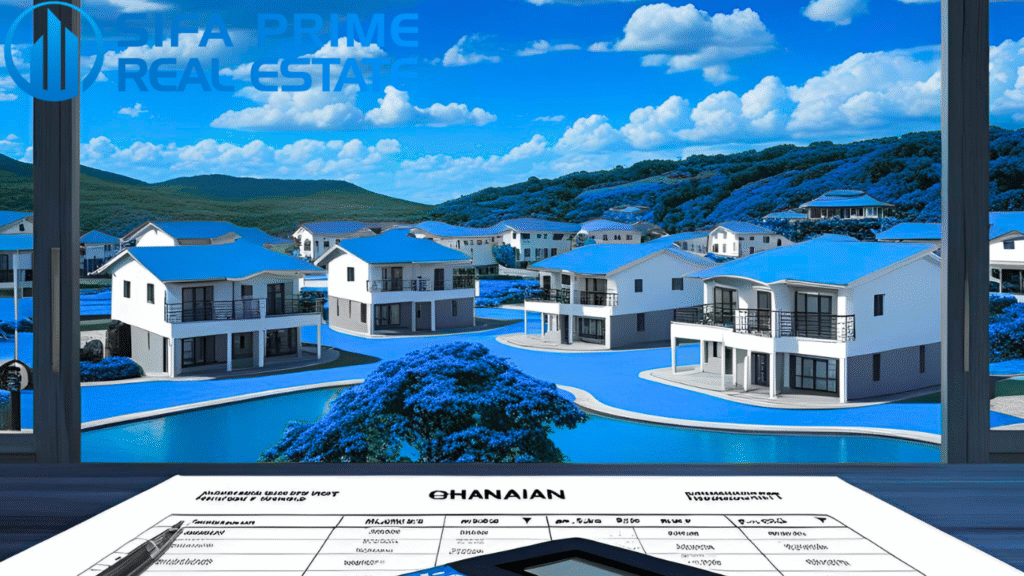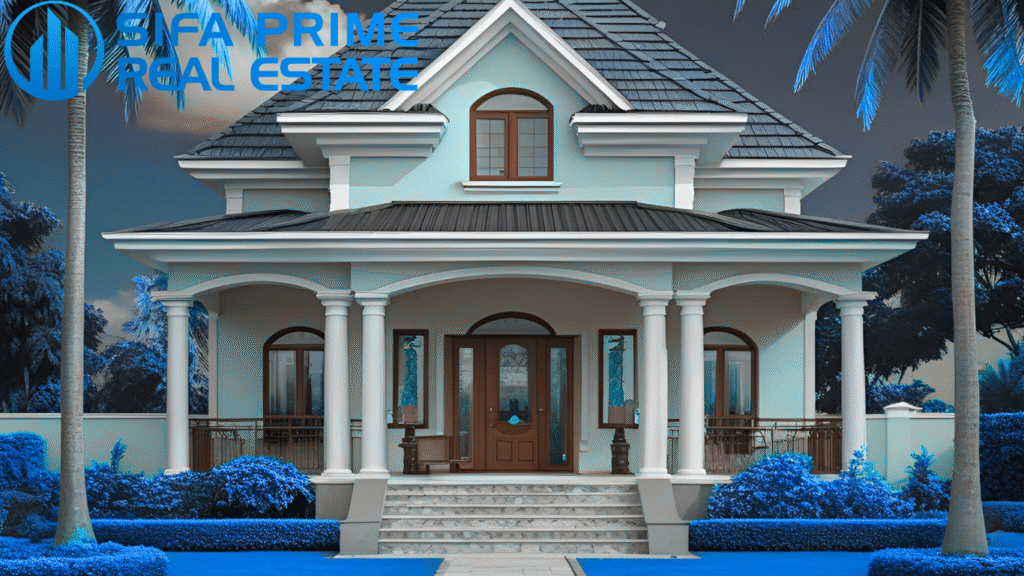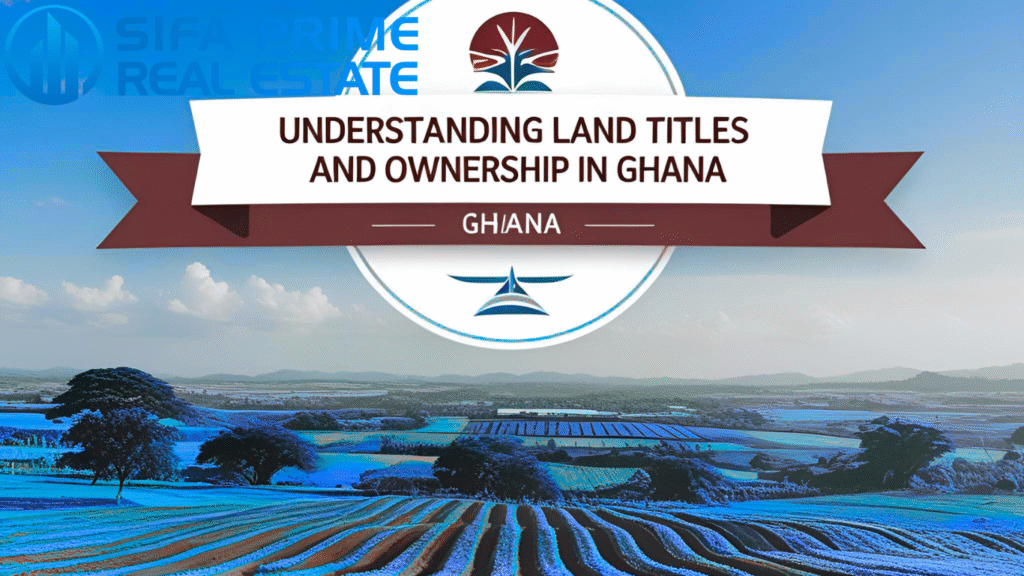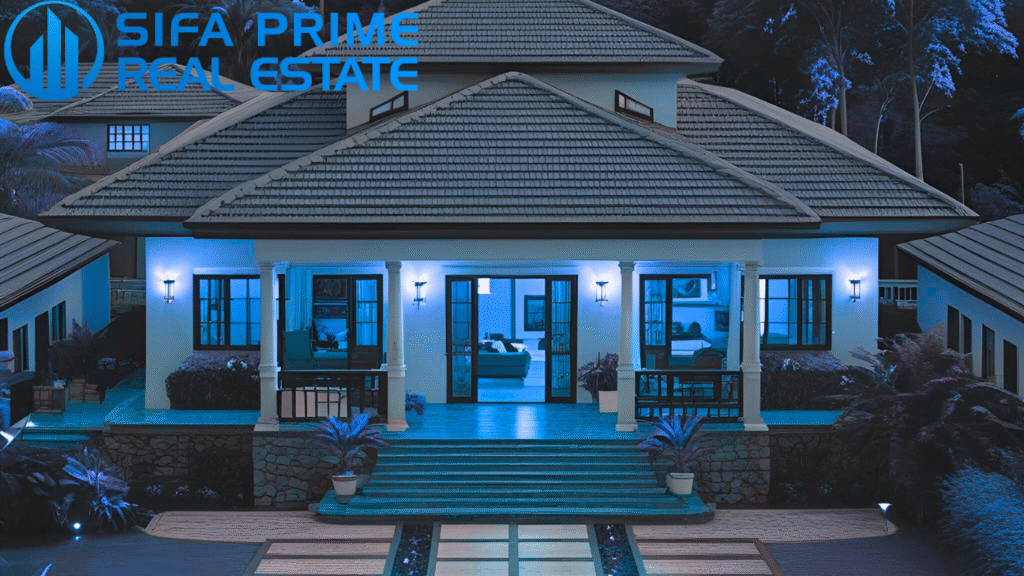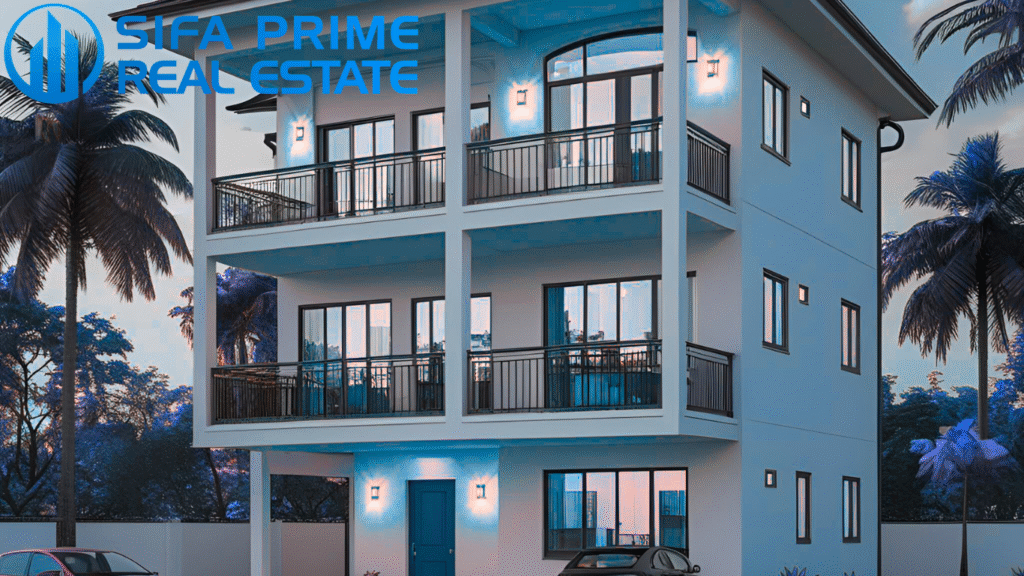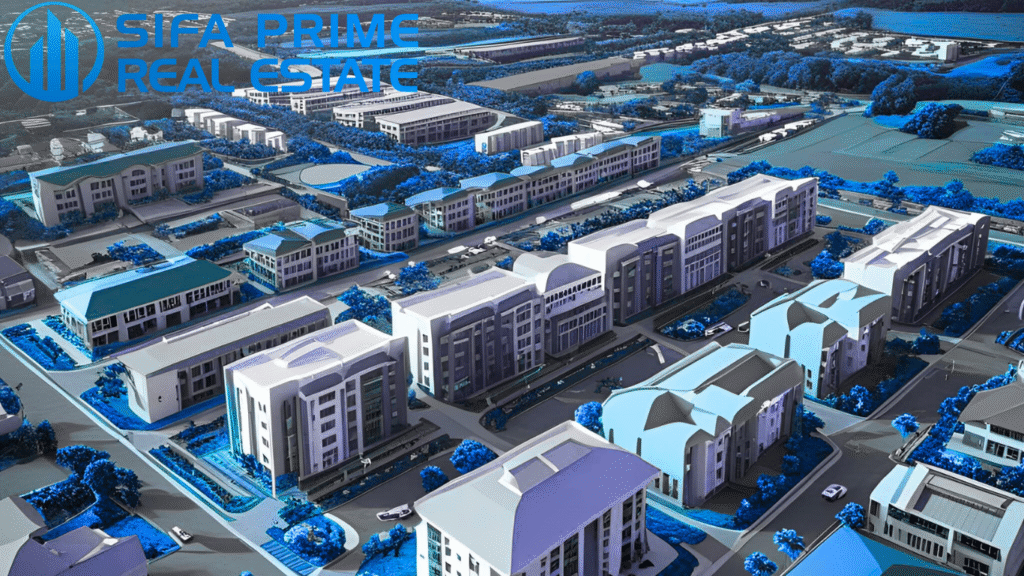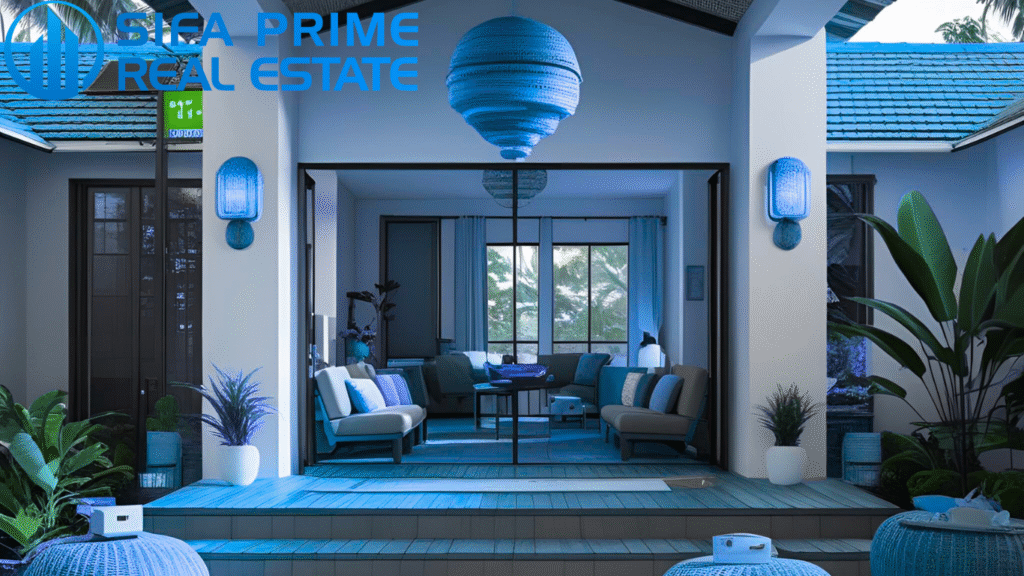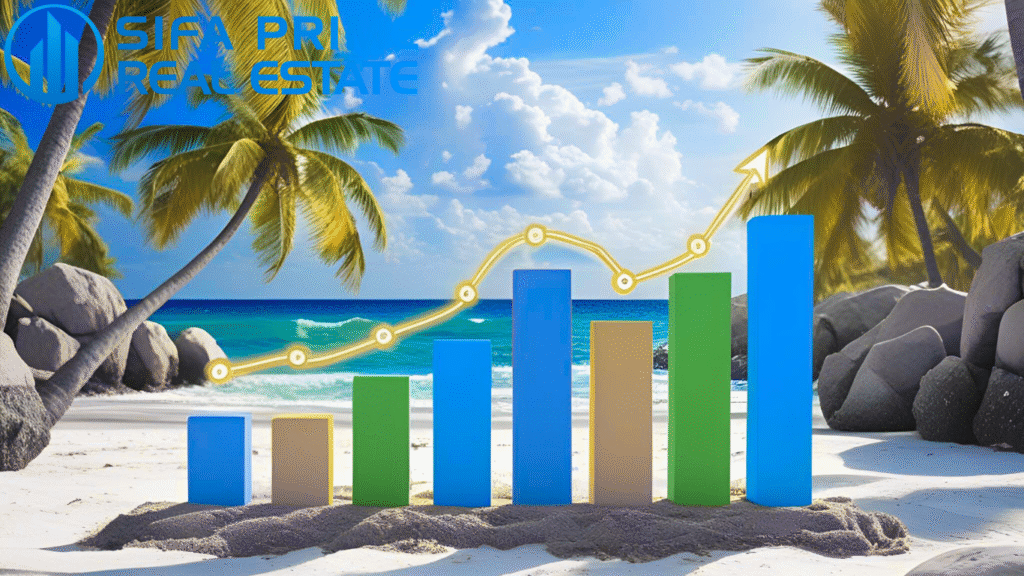How to Calculate ROI Before Buying Property in Ghana
Before investing in real estate in Ghana, it is essential to understand how to measure the profitability of a property. Return on Investment (ROI) is a key financial metric that helps investors assess whether a particular real estate opportunity will deliver worthwhile returns over time. Especially in a growing market like Ghana, calculating ROI before purchasing property enables buyers to compare different investment options, set realistic income expectations, and manage risks effectively. For both local and foreign investors, ROI provides a snapshot of the income potential of a property in relation to the capital invested. Informed decisions based on ROI analysis can improve the chances of long-term success, whether the goal is rental income, capital appreciation, or both. Two Methods to Calculate ROI Before Buying Property in Ghana There are two widely accepted approaches to calculating ROI on real estate investments: the full cost method and the out-of-pocket method. Both methods are applicable in Ghana’s property market, depending on how the property is financed and what costs are included in the evaluation. 1. Full Cost MethodThis method considers the total cost of acquiring the property, including the purchase price, closing costs, legal fees, renovation expenses, and any other initial costs. The ROI is then calculated by dividing the annual net income generated from the property by the total cost. Formula:ROI = (Annual Net Income / Total Investment Cost) × 100 This approach is ideal for investors purchasing with full cash or looking to understand the return based on the entire capital invested, irrespective of financing. 2. Out-of-Pocket MethodThe out-of-pocket method is commonly used when financing is involved. It calculates ROI based only on the actual cash the investor has put into the deal, such as the down payment, closing costs, and any upfront repairs. The loan amount is excluded from the denominator. Formula:ROI = (Annual Net Income / Out-of-Pocket Expenses) × 100 This method often results in a higher ROI percentage, especially when the investor uses leverage, making it useful for comparing the efficiency of cash invested. Both methods provide valuable insight, and the choice between them depends on the investor’s goals and financing strategy. Evaluating ROI using both approaches offers a balanced perspective and helps ensure informed decision-making when entering the Ghanaian property market. Full Cost Method to Calculate ROI Before Buying Property in Ghana The full cost method of calculating ROI takes into account the total investment made to acquire and prepare a property for rental or resale. This includes the purchase price, legal and agency fees, renovation costs, taxes, and any other acquisition-related expenses. Formula:ROI = (Annual Net Rental Income / Total Investment Cost) × 100 Example:Suppose an investor purchases a two-bedroom apartment in East Legon for GHS 600,000. Additional costs include: Legal and closing fees: GHS 20,000 Renovation and furnishing: GHS 30,000 Total investment: GHS 650,000Annual rental income: GHS 78,000Annual property expenses (maintenance, management, taxes): GHS 18,000Net annual income = GHS 60,000 ROI = (60,000 / 650,000) × 100 = 9.23% This method provides a realistic view of profitability when all capital expenditures are included, which is important for investors using full-cash strategies or long-term ownership models. Out of Pocket Method to Calculate ROI Before Buying Property in Ghana The out-of-pocket method focuses on calculating ROI based solely on the cash an investor contributes directly, excluding financed amounts. This is particularly relevant in Ghana, where mortgages are available but often require a 20%–30% down payment. Formula:ROI = (Annual Net Rental Income / Total Cash Invested) × 100 Example: Purchase price of property: GHS 600,000 Mortgage: 70% = GHS 420,000 Down payment: GHS 180,000 Legal, closing, and renovation costs: GHS 50,000Total out-of-pocket investment = GHS 230,000Annual net rental income: GHS 60,000 ROI = (60,000 / 230,000) × 100 = 26.09% This method shows how financing can significantly improve ROI on the same property by leveraging bank loans, which is a growing trend in Ghana’s urban real estate markets. Key Factors That Affect ROI Before Buying Property in Ghana Numerous elements influence the potential return on real estate investments in Ghana. These include macroeconomic conditions, local market trends, location dynamics, property-specific features, and value brackets. Each factor contributes uniquely to the financial performance of a property, and understanding them helps investors assess true ROI potential. Market Conditions That Affect ROI Before Buying Property in Ghana Macro-level factors such as Ghana’s GDP growth rate, inflation, and interest rates directly impact real estate returns. When the economy is expanding and disposable incomes rise, demand for both rental and owned property increases, boosting rental yields and resale values. Inflation affects property costs, maintenance, and rental prices. High inflation can erode purchasing power but may also drive up rents and asset values. The Bank of Ghana’s policy rate also shapes mortgage availability and affordability, which in turn affects buyer demand and pricing trends. A stable and growing economy tends to support higher ROIs by increasing both occupancy rates and capital appreciation opportunities. Housing Supply and Demand Impact on ROI Before Buying Property in Ghana The supply-demand balance in cities like Accra, Kumasi, and Takoradi plays a major role in determining rental prices and resale value. In high-demand neighborhoods such as East Legon, Cantonments, and Airport Residential Area, rental income is more consistent due to limited supply and high tenant interest. In contrast, oversupplied or less desirable areas may face extended vacancies or lower yields. Monitoring residential construction trends and tenant demand in each region helps identify which markets are likely to offer stable or growing ROI in the near term. Location Influence on ROI Before Buying Property in Ghana Ghana’s investment zones vary widely in ROI potential due to factors like infrastructure development, access to commercial centers, and safety. Properties located near economic hubs such as Accra’s Airport City or Kumasi’s Adum Central typically enjoy strong rental demand and faster capital appreciation. Emerging areas like Oyarifa, Pokuase, and Amasaman may offer lower entry costs and high future ROI due to ongoing infrastructure projects. Evaluating location with an investment lens—rather than just

